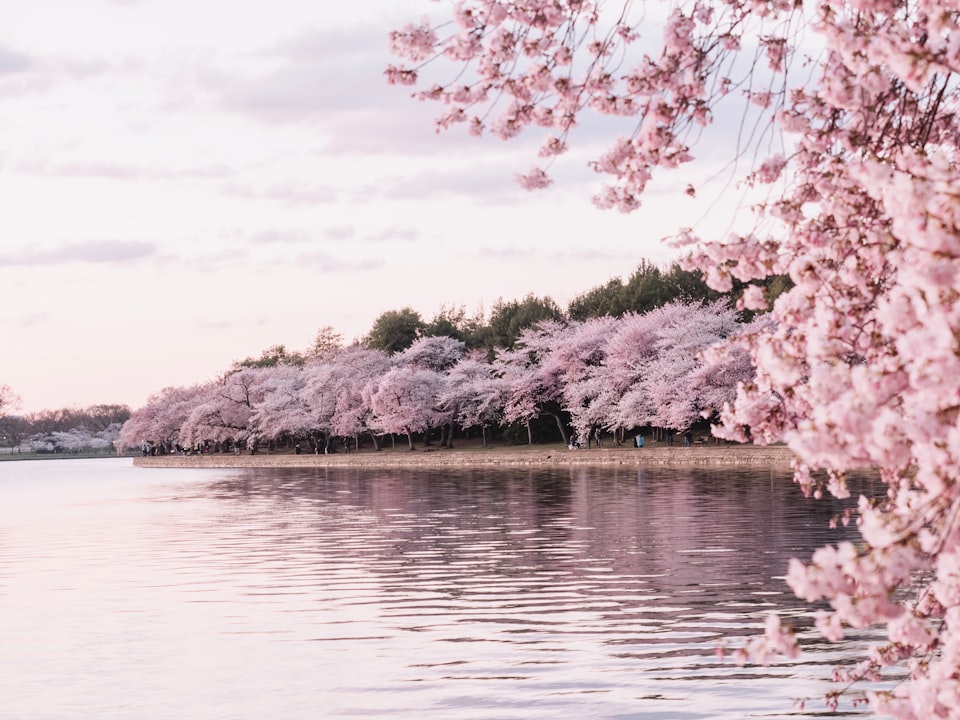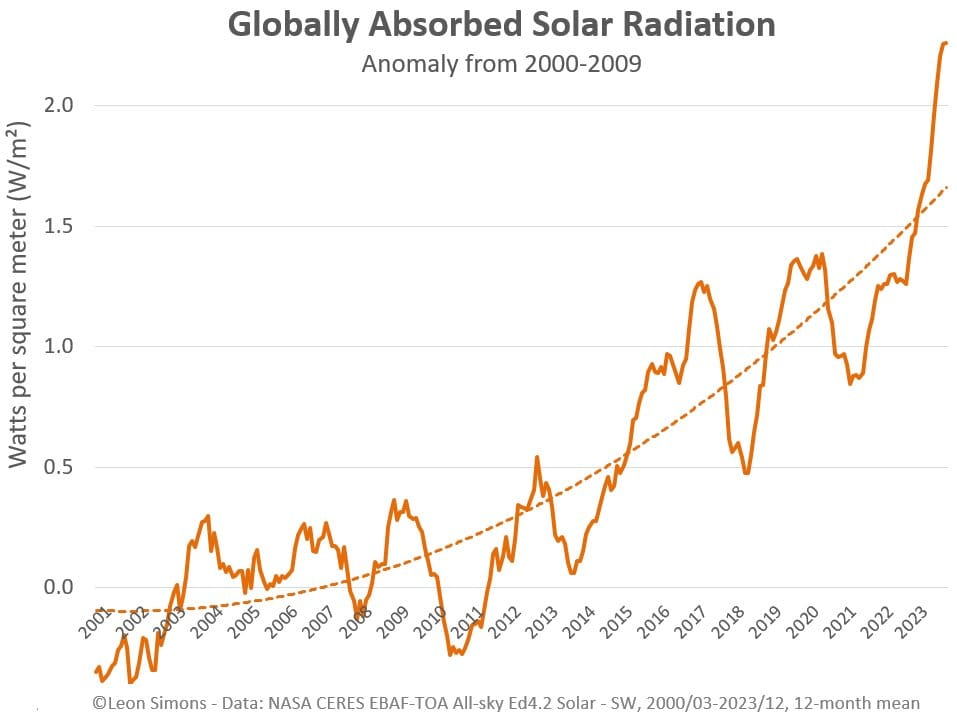The Rites of Climate Change

Admittedly a bit of a hokey title, but you try and write about this stuff every week when you can hardly turn around without seeing some new horror. And this week, we're drilling down on a few seasonal specifics. You see, it's been really hot this year–breaking records pretty much every day for the last year, as we've discussed–and while that can give folks a nice break from the chill of winter, the effect this has other than letting you go without long johns is quietly sinister.
You will likely not be shocked to find out that where there are seasons, life has adapted to them. When the cycle of seasons is disturbed, life tends to suffer before it can adapt. We'll likely feel this disturbance acutely this year, as it has been so particularly, suddenly hot. It's likely that plants and animals around you are acting as though we're mid-spring, though we're only just recently coming into the season proper. This has real ramifications on their lives, and on ours.
In addition, we're going to be talking about trouble on the horizon for the US electrical grid, and the increasing energy imbalance across the planet (not entirely related). Both of which are bad news, and the latter of which is potentially extremely worrying if some hypotheses are correct.
Spring Sprung
There are the obvious ramifications to our weather turning weird. With the rapid hot and cold snaps across the United States this year (and in years previous), plant and insect life can cycle out of hibernation during a warm spell, expecting spring, only to have a cold snap the next week (or day) kill off whatever has begun to grow. This isn't the only way things go wrong, though.
Interdependent plants, animals, and insects are not always precisely attuned to one another. When weather occurs out of its known bounds, one species that relies upon another can be roused before its symbiotic buddy, and their life-cycles fall out of sync. Practically speaking, this looks like a particular species of flower growing before a particular species of bee comes out of hibernation, resulting in not only a swath of flowers missing pollination, but those bees missing out on much needed food. When you blow this idea up across a region that is seeing a particularly sudden shift into (and out of) spring, this can really throw off an ecosystem.
It's not just flowers and bees, either. Birds are starting their return migration earlier and earlier, out of sync with their insect prey. Contrariwise, generally softer cold snaps and longer periods of warmth are increasing the active cycles of pests like mosquitoes and ticks, which then spread disease across host animals and to humans. And, for one more kick to the shin: these easy winters and springs are wreaking havoc on fruit trees. Trees need consistent seasons to acclimate to cold temperatures, allow their flowers to bloom properly, and, naturally, a late cold snap (such as those that occur thanks to polar vortices) can kill fruit before it gets a chance to grow. All of this combined is not just the loss of luxuries like cheap produce–it will eventually mean a real scarcity of food for folks across the planet.
It's Been Really, Really Hot
Due to a confluence of our reduction in sulfuric shipping emissions and El Niño, the planet has gotten, rather suddenly, markedly hotter than before. This is, of course, the whole problem with global warming, but it comes with some immediate effects to our lives, and not just the forthcoming collapse of AMOC and oceanfront property in Arizona.
For instance, the United States is in some real trouble with our power grid. The proliferation of AI, crypto-mining, EVs, and renewables, has pushed our infrastructure to the limit. The expected demand for electricity has skyrocketed, with no commensurate surge in supply. This will, particularly in the summer, set communities, regions, and perhaps whole states, on a course for dangerous blackouts.
In particular, these data centers are enormous drains on energy supplies and they offer very little to us practically–what, did you really need that AI-generated picture of yourself in a Star Wars cantina? They tend to target areas of cheap-ish land, where the energy grid is incidentally not the most robust. This leaves cities and counties like mine, who are being "courted," as the article linked above puts it, by data companies, in a bind. The question isn't "do we bring these companies in and risk overtaxing our grids," it's "how fast can we get these companies and how much money can we expect from them?" With citizens bearing the negative effects.
What's more, this recent thirst for energy comes at a time when our grids need to be used for expanding green energy sources if anyone hopes to have a "green growth" future, in which capitalism (or socialism, for that matter) allows for unimpeded growth. There is a horizon past which we simply don't have the energy and materials left to create green infrastructure, and are either stuck with our fossil fuels and ever-accelerating climate change or no energy grid at all and somewhat-more-slowly-accelerating climate change.
Earth's Energy Imbalance
You'll recall from high school science that the reason we call greenhouse gases greenhouse gases is because they trap energy from the sun in our atmosphere, where without those gases more of that energy would escape back into space–much like the glass in a greenhouse. This is the very basic problem of climate change: due to human action, the balance of radiant energy being absorbed by the Earth is greater than the amount of energy being reflected back into space, resulting in an ever-increasing imbalance. Lately, this energy imbalance has been dramatically increasing.

A lot of this sudden increase in imbalance is due to the lack of sulfur-based pollutants that, while bad, were also reflecting a lot of solar radiation back into space. Without that band of pollutants, primarily created by large shipping vessels, the Pacific and Atlantic have seen a huge increase in absorbed solar energy. The oceans in general absorb and hold the vast majority of solar energy that strikes the planet–in such a way that not all that energy is felt across the world immediately, as we've discussed before. But that energy does get felt eventually.
Boiled Down
Ultimately, this isn't really news to you: we've known for some time that climate change is going to accelerate and to continue to do so. This is just one more metric that bears that out and will further exacerbate that acceleration. As the oceans absorb more radiant energy, they will warm, melt ice, lower the reflectivity of the planet (the albedo, that is), and warm further still, and faster.
The trouble is that these effects are starting to compound and interfere more and more directly with our lives. It's been said here and elsewhere a hundred times, but climate change is not a pending crisis–it is present now, and it will only get worse. As weather patterns continue to fluctuate, we will see pangs of scarcity become more and more common, and eventually our ecosystems will not be able to compensate.
There is something you can likely do, though: plant pollinator-friendly flowers and crops; leave your gardens a mess at the end of the season and don't prep them for planting until we've had a good warm stretch of weather to provide safe places for bugs and birds to overwinter; be as sparing with exterior lighting as possible. These will all help local critters find shelter and food, and assist with migration. It's not a lot, but in the face of such an enormous crisis, being able to do something at all is worth it.
A housekeeping note: it's the anniversary of an awful time of year for me, so I will be taking a little time off for my mental health. We'll be back in a few weeks.
